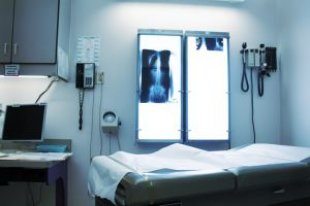All doctors must be licensed in order to practice medicine. However, medical licensure is not the same as board certification, which is a separate and voluntary professional standard. That means it is possible for a legally practicing, fully licensed doctor to lack board certification. But what does that mean for the plaintiff in a medical malpractice lawsuit in Philadelphia or New Jersey? How could a doctor’s board certification (or lack thereof) affect a personal injury case?
The purpose of board certification is to demonstrate exceptional competency in a specific medical field – in other words, to become a certified specialist. There are 24 different specialty boards in the U.S. as of October 2015, all of which are named “the American Board of” the relevant specialty. Some examples include the American Boards of:
All of these boards collaborate with the American Board of Medical Specialties (ABMS), a non-profit established in 1933, which functions like a parent organization under which individual specialty boards (“Member Boards”) are consolidated. ABMS Member Board certification is widely regarded as the gold standard for medical certification in the United States, and certification status is routinely reviewed by such prestigious bodies as the Joint Commission, the National Committee for Quality Assurance (NCQA), and URAC (formerly the Utilization Review Accreditation Commission).
In order to become certified by an ABMS Member Board, doctors must meet the following six requirements:
Once a doctor has received initial certification, he or she may elect to continue with the ABMS Program for MOC (Maintenance of Certification). According to the ABMS, about 500,000 out of 800,000 certified physicians (62.5%) are involved in MOC programs. Most estimates state that somewhere between 80% and 85% of U.S. doctors are currently board certified, meaning about 15% to 20% are not.
As we noted earlier, it is not mandatory to become board certified. However, since patients are often encouraged to select board certified doctors, certification has effectively become essential for doctors who wish to remain competitive with their peers.

There is absolutely nothing in state or federal laws to prohibit suing a negligent doctor solely because he or she happens to be board certified. In fact, large numbers of medical malpractice lawsuits inevitably involve certified doctors, simply because few doctors aren’t certified. You can find out if your doctor is board certified by using the ABMS MOC Certification Matters tool. Simply type in the information you know, and leave the other fields blank.
While board certification doesn’t preclude the possibility of civil litigation, it does impact malpractice plaintiffs in another way. If you are the plaintiff in a medical malpractice suit, usually your case against your physician must be supported by a doctor who practices in the same specialty or subspecialty. For instance, if you were suing your obstetrician over a birth injury, your attorney would need to consult with another doctor who was also certified by the American Board of Obstetrics and Gynecology. However, courts have sometimes been known to override this requirement in certain cases.
The exact laws which govern this requirement vary from state to state. In New Jersey, statute N.J.S.A. § 2A:53A-41 sets forth the requirements for persons giving expert testimony. Below, we’ve reworded the relevant content for greater clarity.
If the defendant is a specialist (or subspecialist) who has been recognized by the ABMS or the American Osteopathic Assocation (AOA), and the medical care/treatment in question involves such ABMS- or AOA-recognized (sub)speciality, then the expert witness providing testimony generally should have been an ABMS- or AOA-reocgnized (sub)specialist in the same field, at the time the questionable care was provided to the plaintiff. However, there are also some exceptions, as we’ll discuss shortly.
Typically speaking, the expert witness should be either (1) a physician “credentialed by a hospital to treat patients for the medical condition, or to perform the procedure” involved in the malpractice lawsuit, or (2) an ABMS- or AOA-recognized (sub)specialist, who is board certified in the same (sub)specialty. During the year before the treatment which led to the lawsuit was rendered, the expert witness should have “devoted a majority of his professional time to” one or both of the following:
That being said, the courts are authorized to waive the normal ABMS/AOA board certification requirements. However, in order for this to happen, some alternative requirements must be met instead. First, the plaintiff (“party seeking a waiver”) must be able to satisfactorily demonstrate that “a good faith [honest] effort has been made to identify an expert in the same specialty or subspecialty.” Second, the proposed expert witness must “possess sufficient training, experience and knowledge to provide the testimony,” due to his or her “active involvement in, or full-time teaching of, medicine in the applicable area of practice or a related field of medicine.”
A few additional points:
As the statute makes provisions for, some courts have found exceptions to the general rule that doctor must practice in the same specialty or field as the doctor he/she testified against. For instance, in Ryan v. Renny (2010), the Supreme Court of New Jersey ruled 6-1 in favor of allowing plaintiff Abby Ryan to proceed with her suit against Dr. Andrew Renny, MD, despite the fact that Abby’s affidavit came from a physician in another specialty.

Pennsylvania law creates a similar requirement under 40 Pa. Cons. Stat. § 1303.512, which is part of the MCARE (Medical Care Availability and Reduction of Error) Act. Under 40 Pa. Cons. Stat. § 1303.512(c)(3), “In the event the defendant physician is certified by an approved board, [a person providing expert medical testimony must] be board certified by the same or a similar approved board.”
However, 40 Pa. Cons. Stat. § 1303.512(e) makes an exception: the court has the power to waive this requirement, as long as the person providing expert medical testimony “possesses sufficient training, experience and knowledge… as a result of active involvement in or full-time teaching of medicine in the applicable [field]” during the past five years.
If you were injured by a careless doctor, nurse, or other healthcare professional, you could have a strong malpractice case. To start discussing your injury in a free, confidential, no-obligation legal consultation, call personal injury lawyer Brent Wieand at (888) 789-3161 today. Brent represents clients throughout New Jersey and Pennsylvania, including Atlantic City and Philadelphia.
***Disclaimer: This article is for informational purposes. It is not legal advice and should not be used as legal advice.***